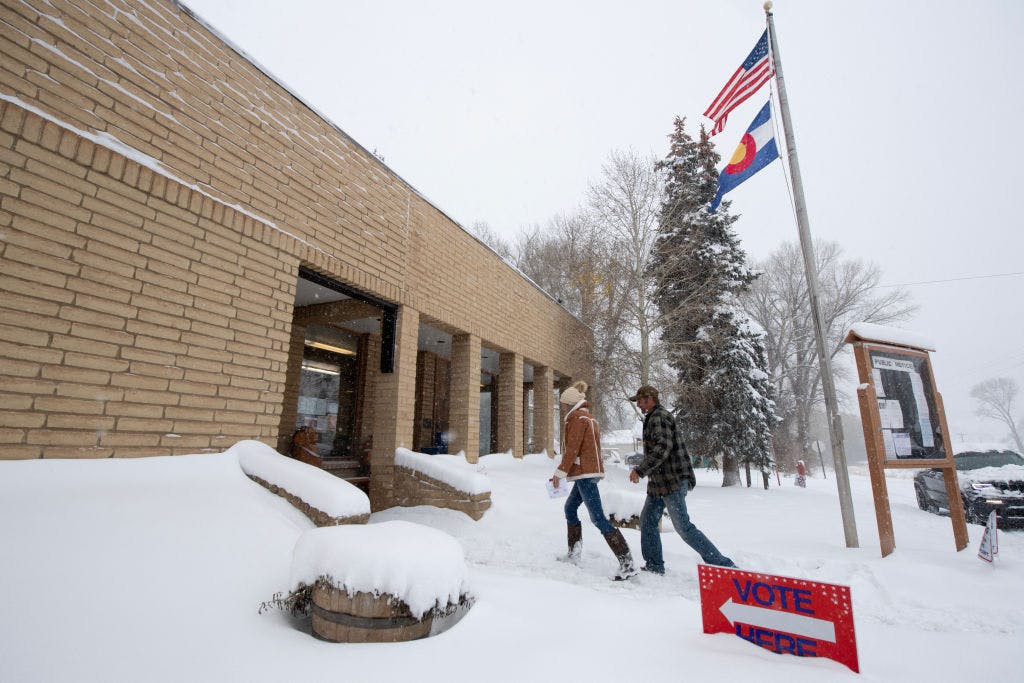Ranked Choice Voting Goes Down In Flames
Last Tuesday, voters in six states decisively rejected ballot measures that would have brought ranked choice voting to future elections. In Arizona, Colorado, Idaho, Montana, Nevada, and Oregon, RCV went down in flames. National groups spent millions on campaigns promising RCV would enhance democracy and empower the people, angling for an election day triumph. Instead, ...

Last Tuesday, voters in six states decisively rejected ballot measures that would have brought ranked choice voting to future elections. In Arizona, Colorado, Idaho, Montana, Nevada, and Oregon, RCV went down in flames. National groups spent millions on campaigns promising RCV would enhance democracy and empower the people, angling for an election day triumph. Instead, the voters handed them a rout.
Adding insult to injury, Alaska appears on track to repeal RCV after using it for just two years. Missouri, meanwhile, became the first state to ban it at the ballot box, and the eleventh state overall to bar RCV. In fact, the number of states to ban RCV more than doubled this year.
Ranked choice voting, a complex scheme, seems better suited to a laboratory than a voting booth. It eliminates the “one person, one vote” principle and asks voters to rank multiple candidates for each race. If no candidate gets a majority, the one with the fewest votes is eliminated, and their ballots are redistributed to the voter’s next choice. This process repeats until someone claims a majority.
Voting takes longer with RCV. Voters must learn about and rank numerous candidates in multiple contests on each ballot. Counting ballots also takes longer, as final tabulations can’t begin until all ballots are received, and some states allow mail ballots to arrive after Election Day. Some states lack voting systems that can handle this process; Idaho’s secretary of state estimated the cost to replace the state’s equipment at $40 million.
The results are difficult to audit and just as hard to explain, especially when ranked choice voting catapults candidates who got the second- or third-most votes into office after numerous rounds of elimination. In fact, RCV is so confusing that the wrong winner can be certified. That actually happened in Oakland, California in 2022.
The one thing RCV does reliably is push politics to the left, particularly when this scheme is paired with California-style jungle primaries. That’s the system Alaska uses, and in the special congressional election of 2022, more voters cast ballots for Republicans but Democrat Mary Peltola went to Congress.
Small wonder, then, that left-wing megadonors decided to push RCV nationwide despite its obvious flaws. They built up an array of organizations to lobby, petition, and ultimately to campaign for ranked choice voting. Those efforts culminated in ballot measures in six states, fueled by an astonishing $99 million, or nearly $30 for every $1 spent in opposition.
Nearly half of that extraordinary sum came from groups tied to liberal billionaire John Arnold and his wife, Laura. The pair spent at least $39 million propping up ranked choice voting measures this year alone.
What did these donors get for their millions? Not much. Nearly 70% of Idahoans voted against RCV. Colorado and Oregon, both liberal states, rejected the measures by double-digit margins. And in the presidential battlegrounds of Arizona and Nevada, ranked choice voting went down harder and faster than Kamala Harris.
Meanwhile, nearly 69% of Missourians voted to proactively ban ranked choice voting. In Alaska, the Arnolds and other RCV megadonors poured in almost $15 million to defend the scheme against a repeal effort. Despite that, the repeal vote is winning as ballots continue to come in.
Washington, D.C., was the only bright spot for RCV advocates, where a citywide ballot measure passed by wide margins. That may not be the win proponents imagine. After all, “they use it in the swamp” isn’t much of a rallying cry.
MATT WALSH’S ‘AM I RACIST?’ NOW STREAMING ON DAILYWIRE+
Is this the end of ranked choice voting? It should be. But with the left, there is no such thing as a permanent defeat. In fact, RCV has endured expensive, high-profile failures before—a $10 million loss in Massachusetts in 2020, for instance—only to rebrand the scheme as “instant runoffs” and “open primaries,” and spend 10 times as much this year.
RCV backers are already promising they will be back, even telegraphing they will focus instead on lobbying state legislatures to impose the scheme that voters just decisively rejected. So much for all their talk about “democracy.” Lawmakers would be wise to head that effort off by banning ranked choice voting next year, instead.
Left-wing billionaires spent millions trying to buy a new form of democracy that would cater to their politics and interests. Fortunately, the American people spoke loud and clear: our election system is not for sale.
* * *
Jason Snead is the executive director of Honest Elections Project Action.
The views expressed in this piece are those of the author and do not necessarily represent those of The Daily Wire.
Originally Published at Daily Wire, World Net Daily, or The Blaze
What's Your Reaction?

































































































